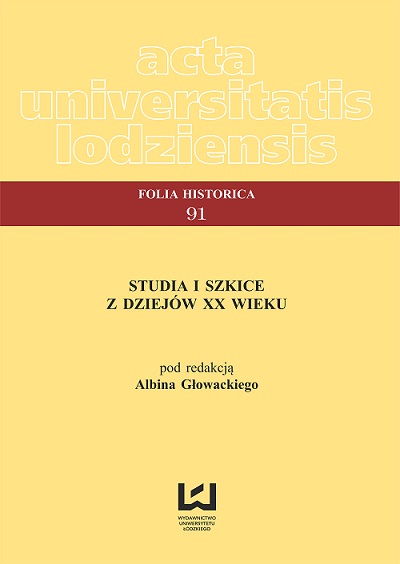Portugalski handel wolframem podczas II wojny światowej – uwarunkowania, specyfika, konsekwencje
DOI:
https://doi.org/10.18778/0208-6050.91.02Abstrakt
The aim of the article Portuguese trade of wolfram during World War II – conditions, characteristics, implications is to depict several aspects of the Portuguese maintaining-balance strategy during World War II. Exploration of valuable deposits of wolfram was meant to be the Portuguese bargaining chip. The article is an attempt of assessing the real scale and importance of the topic. Evaluation involves period 1940–1944 – since capitulation of the III French Republic to definite termination of the Portuguese supplies for the Third Reich. Social background is also included in the text. Exploration of the tungsten had allowed Portugal to save their neutrality in World War II.
Pobrania
Pobrania
Opublikowane
Jak cytować
Numer
Dział
Licencja

Utwór dostępny jest na licencji Creative Commons Uznanie autorstwa – Użycie niekomercyjne – Bez utworów zależnych 4.0 Międzynarodowe.











